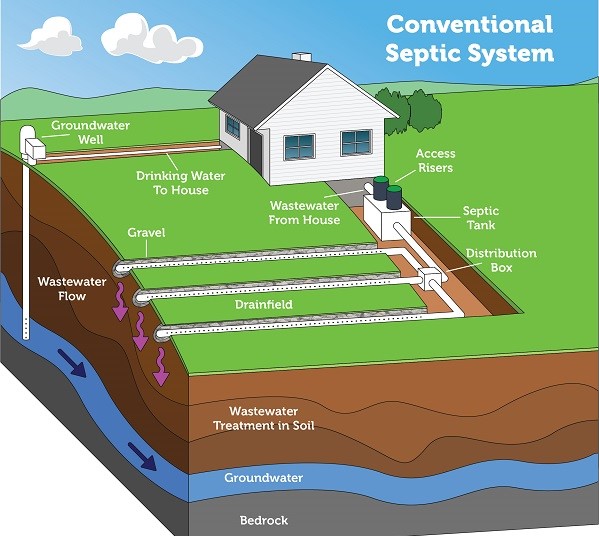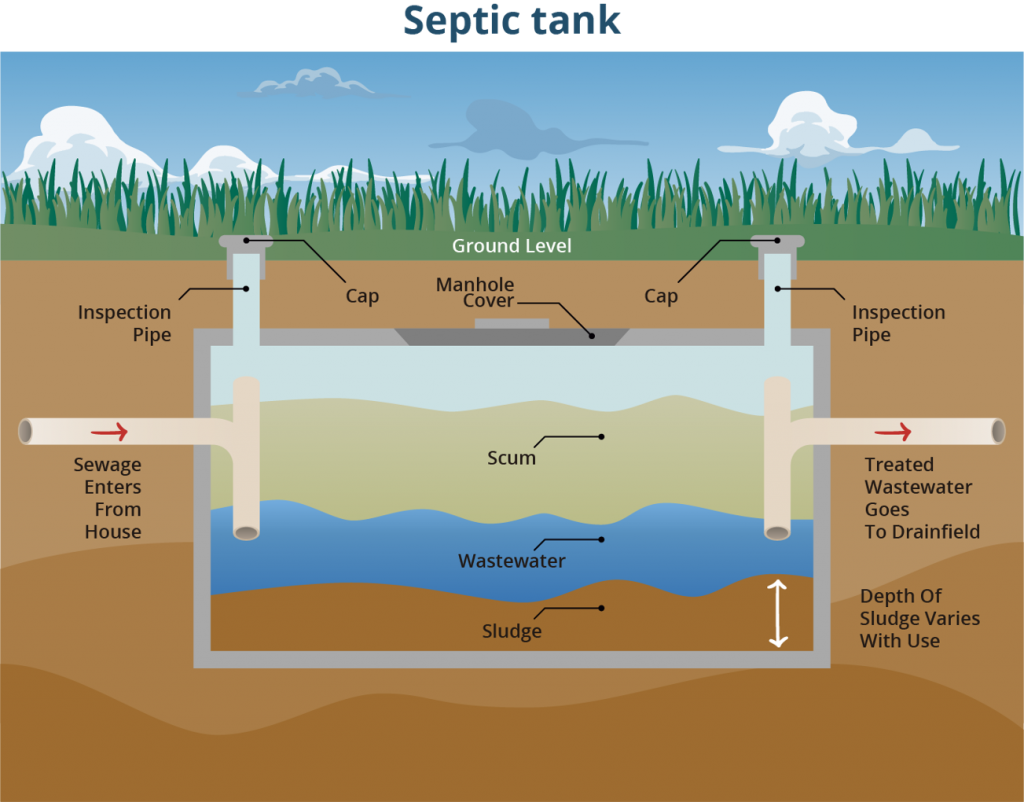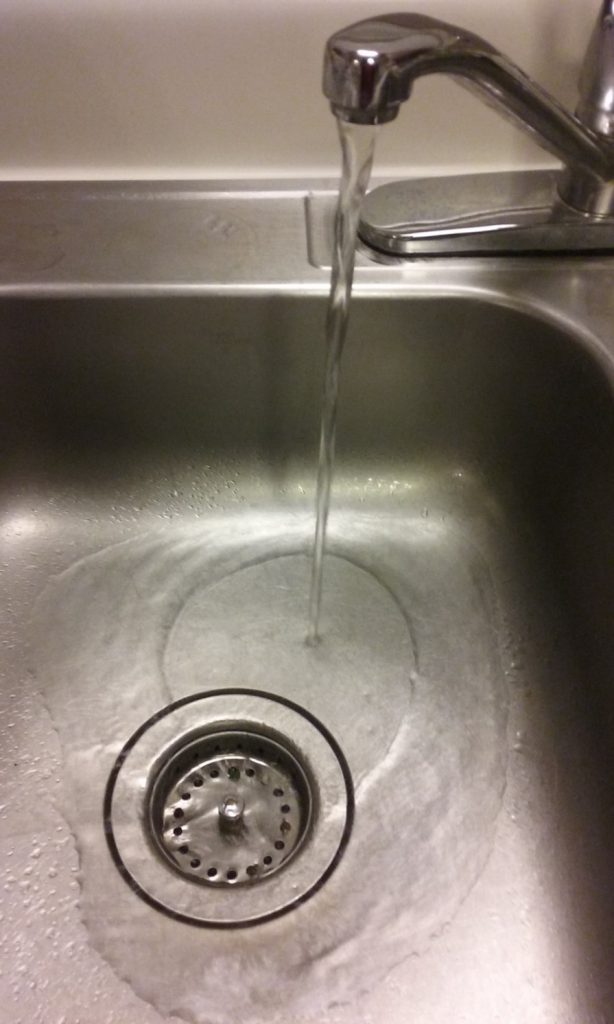
A conventional septic system is composed of a septic tank and a drainfield, where most of the wastewater treatment takes place. Image: US EPA
Why do you need to maintain a septic system?
Conventional septic systems are made up of a septic tank (a watertight container buried in the ground) and a drain field, or leach field. In the septic tank, solids settle on the bottom (the sludge layer), and oils and grease float to the top and form a scum layer. The liquid wastewater, which is in the middle layer of the tank, flows out through perforated pipes into the drainfield, where it percolates down through the ground. Most wastewater treatment takes place in the drainfield.

Solids settle to the bottom of a septic tank (sludge), oils and greases float to the top (scum) and wastewater (effluent) flows out of the tank into the drainfield for further treatment. Image: Soil and Water Science Lab, UF GREC.
Although bacteria continually work on breaking down the organic matter in your septic tank, sludge and scum will build up, which is why a system needs to be cleaned out periodically. If not, sludge and scum can flow into the drainfield clogging the pipes and sewage can back up into your house. Overloading the system with water also reduces its ability to work properly by not leaving enough time for material to separate out in the tank, and by flooding the system.
Should you use additives in your septic system?
Septic systems do not need any additives to function properly and treat wastewater. Although there are many commercial microbiological and enzyme additives sold on the market that claim to enhance bacterial populations and reduce the time between septic system pumping, there really isn’t any peer-reviewed scientific literature that shows that these additives are effective in doing what they claim.
In Florida, the Department of Health (DOH) reviews commercially sold additives to ensure that they are safe to use in septic systems. DOH clearly states that although products are approved, it does not mean that this is an endorsement or a product recommendation. Approval simply means that as required by Florida law, the additive doesn’t interfere with septic system function and that when an additive is used, the effluent (wastewater) leaving the septic system meets Florida’s water quality standards. Only products in compliance with this law can be sold or used in septic systems in Florida. You can find a list of approved products and more information regarding additives on the Florida Department of Environmental Protection (FDEP) septic system website. Access the list of products directly here (updated 10/18/2021).
How can you properly care for your septic system?
The best way to keep your system functioning properly is to follow some common-sense practices.
- Only flush human waste and toilet paper down the toilet. Wet wipes do not break down in the septic system even though the packaging labels them as septic-safe!
- Think at the sink. Avoid pouring oil and fat down the kitchen drain. Avoid excessive use of harsh cleaning products and detergents which can affect the microbes in your septic tank (regular weekly cleaning is fine). Prescription drugs and antibiotics should never be flushed down the toilet.
- Limit your use of the garbage disposal. Disposals add organic matter and additional water to your septic system, which results in the need for more frequent pumping.
- Take care at the surface of your tank and drainfield. Don’t drive vehicles or heavy equipment over the system. Avoid planting trees or shrubs with deep roots that could disrupt the system or plug pipes.
- Conserve water. Reduce the amount of water pumped into your septic tank through water conservation practices like (1) repairing leaky faucets, toilets, and pipes, (2) installing, low-flush toilets, low-flow showerheads and faucet aerators, and (3) only running the washing machine and dishwasher when full.
- Have your septic system pumped by a certified professional. The general rule of thumb is every 3-5 years, but it will depend on household size, the size of your septic tank, how much wastewater you produce and what you flush down your toilet.
Even when conventional septic systems are well maintained, they are still a source of nutrients, particularly nitrogen, to groundwater. They were designed from a public health perspective to remove pathogens, not nutrients.
For more information on septic systems, visit the UF/IFAS septic system website and FDEP’s septic system website.
- What to Do if a Sinkhole Opens on Your Property? - June 6, 2025
- Workshop on Private Well and Septic System Basics - October 18, 2024
- Septic system maintenance after a flood - June 7, 2024

